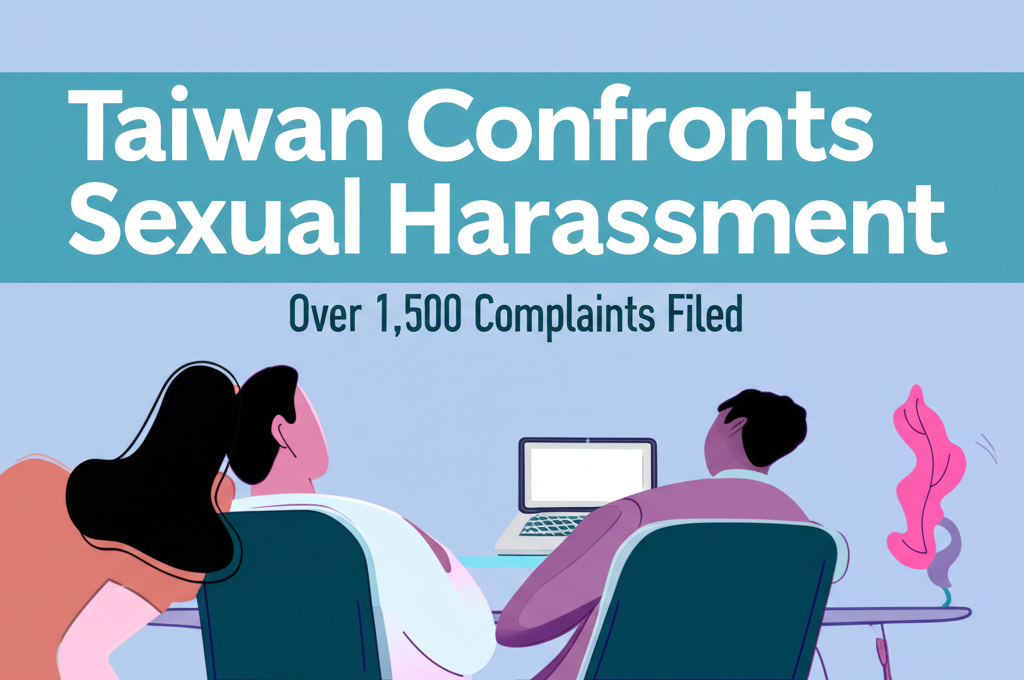Taiwan Confronts Workplace Sexual Harassment: Over 1,500 Complaints Filed
New Legislation Leads to Surge in Reports and Employer Accountability

Taipei, Taiwan – In a significant development regarding workplace safety, the Ministry of Labor (MOL) announced that over 1,500 complaints of sexual harassment were reported in Taiwan during 2024.
This surge in reported cases follows the implementation of laws making employers responsible for gender-related misconduct, effective from March of the previous year.
The MOL recorded a total of 1,577 workplace sexual harassment complaints between March and December. This period marked the first time employers were legally obligated to notify local authorities upon receiving such complaints from their employees, as per the Gender Equality in Employment Act which came into effect on March 8, 2024. These amendments were designed to establish a safe working environment and provide clear guidelines on handling sexual harassment.
Furthermore, the Sexual Harassment Prevention Act and the Gender Equality in Education Act were also amended to address harassment outside the workplace, covering instances in schools and the public sector.
Of the reported complaints, 354, or 22.4 percent, involved government agencies. A substantial majority, 1,397 (88.6 percent), were made by women.
According to Wang Chin-jung (王金蓉), deputy head of the Department of Labor Standards and Equal Employment, 127 individuals lost their jobs due to confirmed and severe misconduct allegations.
Analyzing the nature of the complaints, 1,172 involved verbal or physical conduct creating a hostile environment. 325 cases cited abuse of power, while 12 complaints detailed requests for sexual favors. Notably, some complainants reported multiple forms of harassment.
By sector, the manufacturing industry accounted for 21% of the complaints, followed by the public sector (13.8%) and the medical, healthcare, and social welfare segment (12%).
Investigations revealed that 60.2% (949) of the complaints were deemed legitimate. 25.1% lacked sufficient evidence, and the remaining cases were still under review.
Employers are now legally mandated to take corrective action upon awareness of harassment, including offering employees access to counseling or medical support. Wang Chin-jung also highlighted that private sector groups can apply for subsidies to host events promoting the prevention of sexual harassment in the workplace until April 30.
